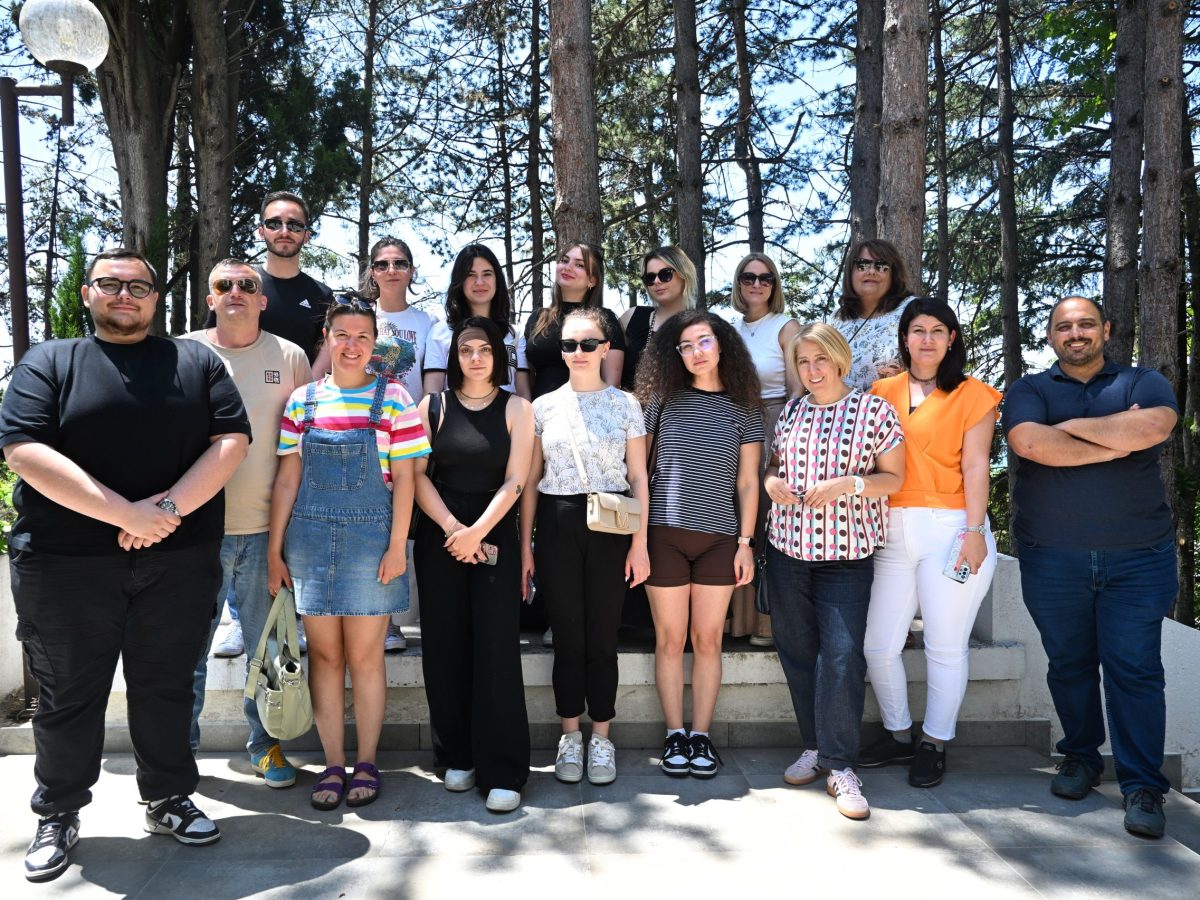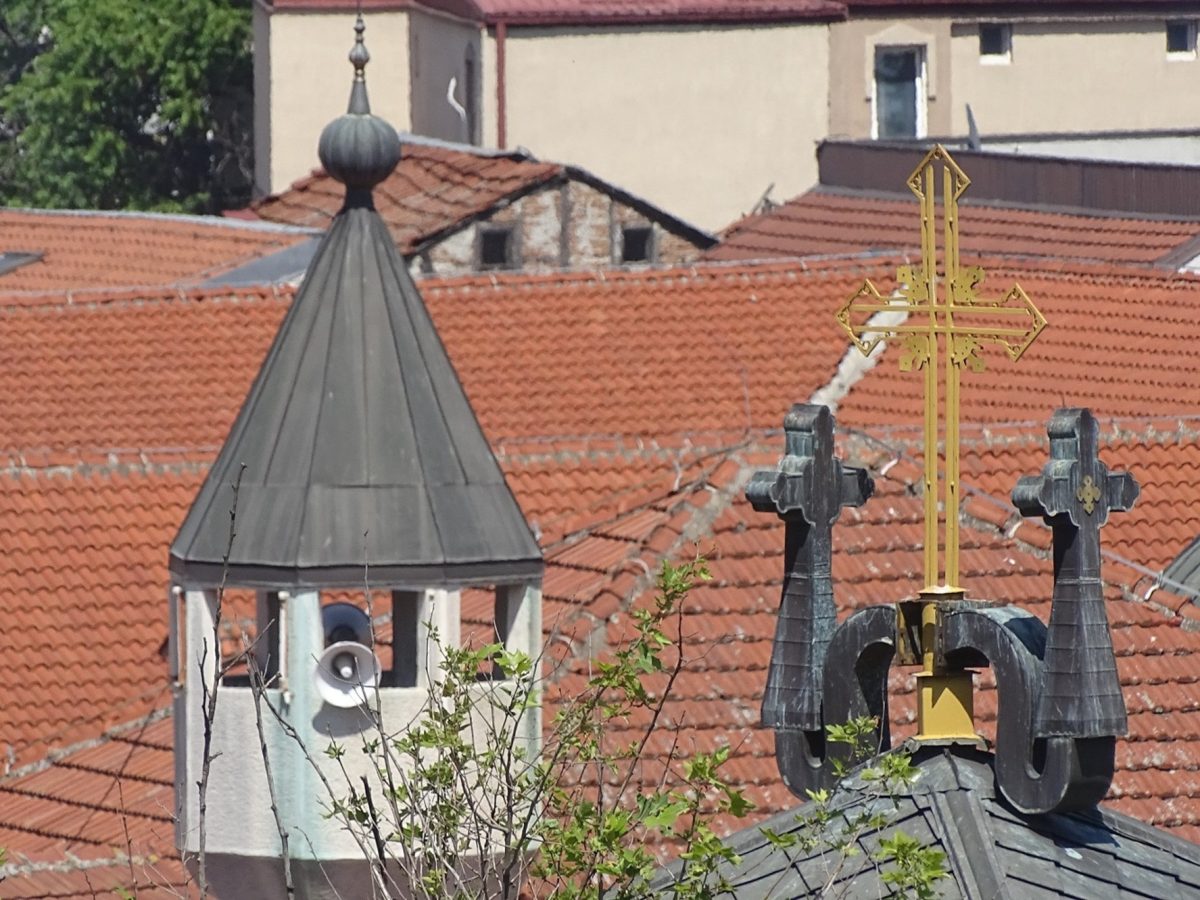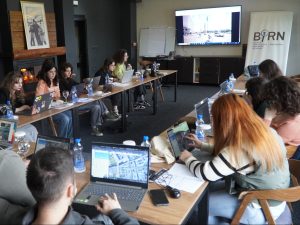From June 12 to 15, 2025, BIRN Macedonia organised a Summer School in Ohrid, marking the final stage of its year-long investigative journalism training programme. The intensive four-day training gathered young journalists who have been part of the programme, offering them an opportunity to deepen the skills they have developed throughout the year.
The Summer School provided a diverse set of trainings, combining lectures, group discussions, and hands-on exercises aimed at enhancing participants’ practical knowledge. The participants explored key aspects of investigative journalism, such as planning and conducting resilient investigations, handling complex interviews and verifying information under challenging conditions. Special attention was given to developing technical skills in mobile journalism, allowing participants to practice producing content using only mobile devices, as well as to the growing role of artificial intelligence, AI, in journalism, discussing both its potential and its risks.
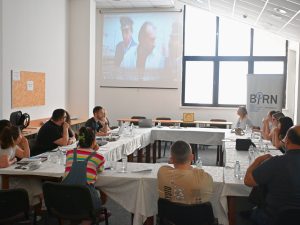
The training also included open discussions on ethical dilemmas, protection of sources, and the realities journalists face when working on sensitive investigations. Through practical exercises and real-life case studies, participants could apply the knowledge they had gained during the programme and reflect on their individual approaches to investigative work.
The Summer School concluded with the selection of one investigative story proposal, which will be developed under the mentorship of BIRN Macedonia’s team in the coming months.
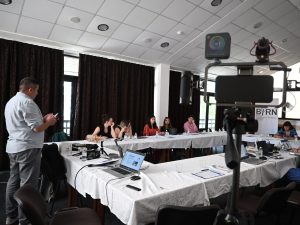
The Ohrid Summer School was the fifth stage of a year-long programme which started in September 2024. Over the past four training sessions, held in four different locations, the participants learned about the basics of investigative journalism, data and public databases, writing investigative stories and advanced investigative techniques.
With this final event, BIRN successfully completed another cycle of its investigative journalism programme, continuing its mission to support young journalists and strengthen investigative reporting in North Macedonia.
